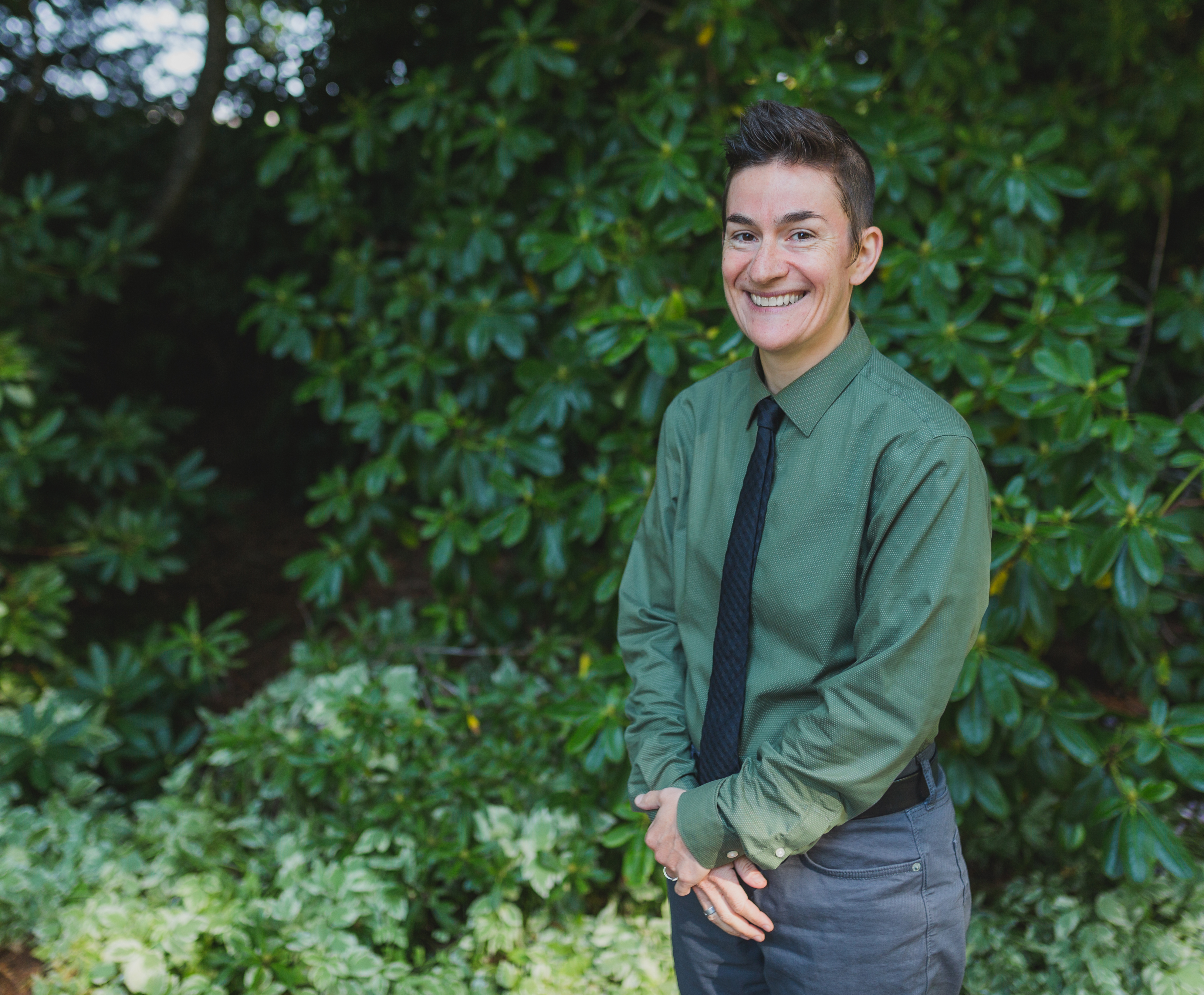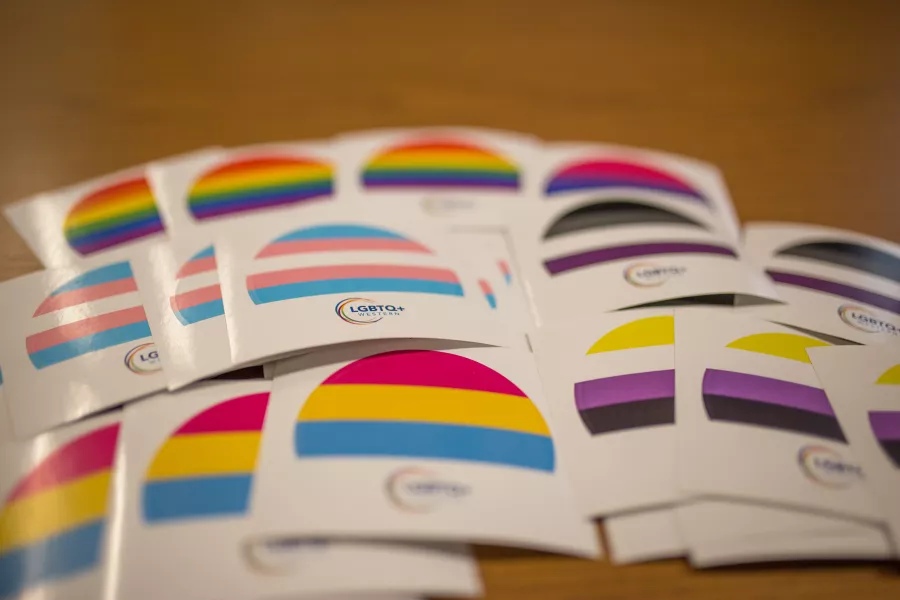LGBTQ+ Director L.K. Langley is an educator, change agent and community builder.
As Langley describes it, they “engage the Western community with transformational knowledge, resources, advocacy, and celebration.”
It’s a big job so it’s a good thing they’re not alone: “I lead these efforts in community with tremendous students, staff and faculty across the university,” says Langley, who became the director when LGBTQ+ Western was established in August 2018.
A lawyer by training with a reputation as a gracious, encouraging and powerful leader, Langley worked for six years in Western’s Equal Opportunity Office. They also have experience as an attorney and civil rights advocate in Massachusetts.
How can LGBTQ+ Western make a difference for LGBTQ+ students?
The ways this role can improve the experience of LGBTQ+ students are multidimensional. From talking with faculty about shifting pedagogical practices and incorporating diverse queer and transgender perspectives throughout the curriculum, to connecting students with affirming wellness resources or helping them navigate housing, to simply sitting with a student who is beginning to explore their gender identity or sexual orientation and saying explicitly that they are important and valued exactly as they are, I am privileged to have opportunities every day to support LGBTQ+ students in being their wonderful, full selves.
Why was the position created?
In different ways and to different degrees, most of us in the United States are socialized into cultures that assume and privilege heterosexuality and binary gender normativity, and that carry living histories of racism and settler colonialism. These realities have real, harmful impacts on the experiences of diverse LGBTQ+ people. Changing our institutional structures and interpersonal behaviors to stop perpetuating these harms requires persistent engagement. While everyone bears responsibility for this engagement, dedicated leadership to move this work forward is crucial too. Queer and trans staff, faculty, and students, along with active allies, were instrumental in articulating the need for this role at Western. I think creation of the LGBTQ+ director position recognizes the importance of this strategic leadership in providing an inclusive and transformative education for all students. In my mind, creation of this position is also a tangible statement that LGBTQ+ students, faculty, and staff are important and valued participants in the intellectual, artistic and social life of Western.
What excites you the most about this job? What gives you hope and energy?
This work is both challenging and filled with reasons to be hopeful. I work in partnership with students and colleagues wrestling with what it means to lovingly understand themselves and engage caringly with one another in the context of a culture that so often still tells queer and trans people that we are less worthy, fabricated, or impossible. There are staff, faculty, and students across fields of study who recognize that learning about LGBTQ+ topics strengthens our capacities to engage with human complexity and fluidity in ways that are necessary to do our work well and justly, whatever that work might be. A number of Western faculty are engaged in powerful research and creative work on queer and trans embodiments, histories, and cultures. For me, the loving commitments, collaborations, and work of students, colleagues, and community partners are grounding and inspiring.
How can all of us create more inclusive environments for LGBTQ+ people in our families and workplaces?
This is an important question, and one that I could talk about for days! I think a first step is recognizing that LGBTQ+ people are everywhere, regardless of one’s geographic location, racial or ethnic identity, community of faith, or the industry one works in. So this question is relevant regardless of who we are or what we do. Related to this, because LGBTQ+ people exist across cultures and hold many different identities, being truly inclusive of LGBTQ+ people means addressing other systems of oppression, including racism, anti-immigrant bias, sexism, and ableism.
What are some ways to engage these concepts in practice? One, avoid assumptions. So often the language we use and questions we ask unintentionally assume heterosexuality or that we can know someone’s gender identity just by looking at or hearing them. Deliberately shift your words to avoid this. Two, speak up. If you hear someone making a joke at the expense of immigrants, transgender people, a gay person, a person of color, say something. Chances are, someone who holds one or more of those identities heard the joke or cares about people whom the joke targets. Saying “not cool” or “that can be really hurtful” sends a small but important message that other people’s humanity isn’t expendable. Three, make use of the many resources out there about how to support LGBTQ+ people. The LGBTQ+ Western website, at lgbtq.wwu.edu/written-resources, shares resources for supporting loved ones who come out as LGBTQ+, respecting transgender people, understanding personal pronouns, and creating learning environments that are welcoming to LGBTQ+ students.

